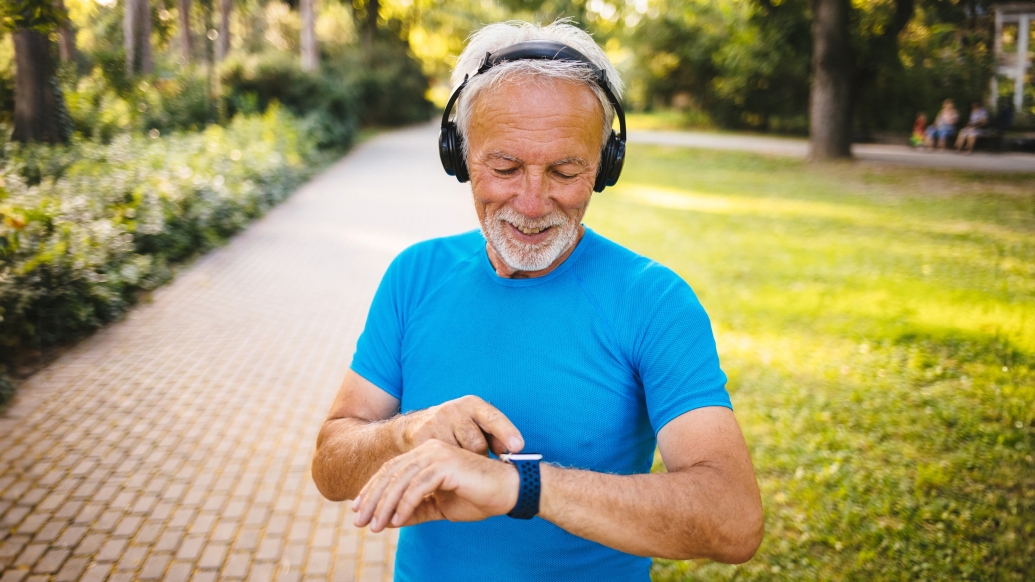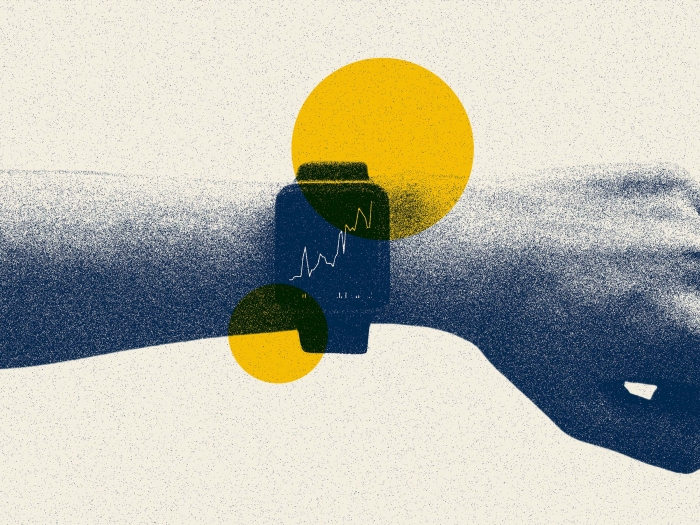Effects from the mobile health intervention later tapered off
5:00 AM
Author |

Exercise is one of the best ways to reduce your risk of heart disease or having a second cardiovascular event, such as a heart attack or stroke.
As more people use wearable technology, such as smartwatches, health care researchers continue to explore whether it can successfully promote physical activity.
That includes customized messages designed to encourage individual patients to be more active in their current location, like walking outside when the weather is nice.
In such a study led by the University of Michigan Health Frankel Cardiovascular Center, personalized text messages effectively promoted increased physical activity for patients after significant heart events — such as a heart attack or surgery — but those effects later diminished.
The research, published in Circulation: Cardiovascular Quality and Outcomes, comes from the Virtual AppLication-supported Environment To Increase Exercise Study, or VALENTINE Study.
The randomized clinical trial assessed, over six months, differences in physical activity levels for over 200 patients enrolled in cardiac rehabilitation who did or did not receive a mobile health intervention promoting exercise.
SEE ALSO: Tailored text messages not enough to improve mobility after heart issues
The text messages accounted for context, including the weather, time and day of the week.
Over the first 30 days, Apple Watch users who received the intervention experienced a 10% increase in step count in the hour following a message, while Fitbit users saw a 17% increase.
“Our study shows incredible promise for simple, low cost interventions delivered through mobile technology and their potential to help prevent secondary cardiovascular events in patients,” said first author Jessica R. Golbus, M.D., assistant professor of internal medicine-cardiology at University of Michigan Medical School and member of the U-M Precision Health initiative.
Cardiac rehabilitation is a medically supervised program that combines physical activity with lifestyle changes to improve health after cardiovascular events.
While recommended, it remains widely underutilized.
After one month, the effects of the personalized messaging began to wear off for both Apple Watch and Fitbit users.
SEE ALSO: AI model predicts death, complications for patients undergoing angioplasty, stents
This regression, researchers say, is natural as patients get accustomed to the messages. However, the team remains optimistic that they can further improve the mobile health intervention through better tailoring over time.
“We learned a lot in this study on how patients could better use digital health tools like smartwatches in the future,” said Brahmajee Nallamothu, M.D., M.P.H., senior author and professor of internal medicine-cardiology at U-M Medical School.
“While the most consistent effects were seen in the first month after smartwatch use, this study was conducted will allow us to further narrow down on how different individuals are likely to be impacted. This is an incredibly exciting time in the field of mobile health technology.”
Additional authors: Jieru Shi, M.S., Rachel Stevens, V.Swetha E. Jeganathan, MBBS, Evan Luff, M.S., Bhramar Mukherjee, Ph.D., Sarah Kohnstamm, M.D., Sachin Kheterpal, M.D., Kenneth Resnicow, Ph.D., Walter Dempsey, Ph.D., Predrag Klasnja, Ph.D., all of University of Michigan, Kashvi Gupta, MBBS, of University of Missouri Kansas City, Thomas Boyden, M.D., of Corewell Health, Vlad Taralunga, B.S.E., Vik Kheterpal, M.D., both of CareEvolution, and Susan Murphy, Ph.D., of Harvard University.
Funding/disclosures: Golbus receives funding from the National Institutes of Health (NIH; L30HL143700, 1K23HL168220) and PCORI. Dr Nallamothu is a principal investigator or coinvestigator on research grants from the NIH, VA HSR&D and the American Heart Association. He also receives compensation as editor-in-chief of Circulation: Cardiovascular Quality and Outcomes, a journal of the American Heart Association.
Paper cited: “Text Messages to Promote Physical Activity in Patients With Cardiovascular Disease: A Micro-Randomized Trial of a Just-In-Time Adaptive Intervention,” Circulation: Cardiovascular Quality and Outcomes. DOI: 0.1161/CIRCOUTCOMES.123.010731
Sign up for Health Lab newsletters today. Get medical tips from top experts and learn about new scientific discoveries every week by subscribing to Health Lab’s two newsletters, Health & Wellness and Research & Innovation.
Sign up for the Health Lab Podcast: Add us on Spotify, Apple Podcasts or wherever you get you listen to your favorite shows.

Explore a variety of health care news & stories by visiting the Health Lab home page for more articles.

Department of Communication at Michigan Medicine

Assistant Professor
Want top health & research news weekly? Sign up for Health Lab’s newsletters today!





